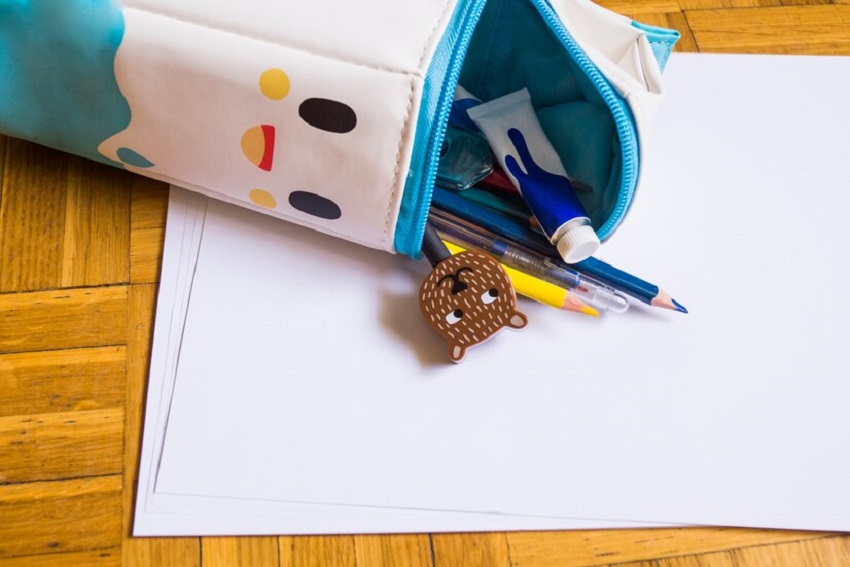Preschool is crucial in a child’s development, laying the foundation for future learning and success. As a parent or caregiver, you play a vital role in shaping your preschooler’s educational journey. In this article, we will explore what your preschooler needs to know and how you can support their learning in a conversational style.
Preschool education is more than just a place for young children to socialize and have fun. It is a structured learning environment that promotes holistic development and prepares children for the challenges ahead. Children’s brains rapidly grow during this period, making it an optimal time to introduce them to various skills and knowledge. By understanding what your preschooler needs to know, you can actively participate in their educational journey and help them reach their full potential.
Importance of Early Education
Early education shapes a child’s cognitive, social, and emotional development. It provides a solid foundation for future learning by fostering essential skills and knowledge. Research has shown that children who attend high-quality preschool programs are more likely to perform better academically, have higher self-esteem, and exhibit improved social skills. Therefore, investing in your preschooler’s education can have long-lasting positive effects on their development and future success.
Developmental Milestones for Preschoolers
During the preschool years, children experience significant growth in various domains of development. Understanding these milestones can help you gauge your child’s progress and identify areas needing additional support. Let’s explore the key developmental areas for preschoolers:
Physical Development
Preschoolers continue to refine their fine and gross motor skills. They gain better control over their movements, allowing them to independently perform tasks such as drawing, cutting, and dressing. Engaging in physical activities and providing opportunities for active play helps strengthen their muscles and coordination.
Cognitive Development
Preschoolers’ cognitive abilities expand rapidly. They develop problem-solving skills, critical thinking, and logical reasoning. This is where they begin understanding basic concepts of numbers, shapes, colors, and letters. Stimulating their curiosity through hands-on activities and age-appropriate puzzles can enhance their cognitive development.
Social and Emotional Development
Preschool is a prime time for children to learn social skills and emotional regulation. They develop empathy, learn to share, take turns, and interact with their peers. Creating opportunities for social interaction, such as playdates or joining group activities, nurtures their social and emotional growth.
Language and Communication Development
Language skills are vital for effective communication and literacy development. Preschoolers rapidly expand their vocabulary and sentence structure. Reading books, engaging in conversations, and providing a language-rich environment stimulates their language and communication skills.
Curriculum for Preschoolers
A well-rounded preschool curriculum encompasses various domains to cater to the developmental needs of children. Here are the key areas typically covered in a preschool curriculum:
Literacy Skills
Preschoolers are introduced to the world of language and literacy. They learn to recognize letters, identify sounds, and develop phonological awareness. Reading aloud to your child, exposing them to various books, and encouraging them to explore letters and sounds can foster their literacy skills.
Numeracy Skills
Basic numeracy skills form the foundation for later mathematical understanding. Preschoolers learn to count, recognize numbers, and understand simple mathematical concepts like addition and subtraction. Incorporating counting games, sorting activities, and real-life examples into their daily routine supports their numeracy development.
Science and Discovery
Preschoolers are natural explorers and scientists. They are curious about the world around them and eager to learn how things work. Introducing simple science experiments, nature walks, and hands-on discovery activities can fuel their curiosity and foster a love for learning.
Creative Arts
Artistic expression is vital for preschoolers’ development. They engage in activities such as drawing, painting, and crafting, which promote fine motor skills, creativity, and self-expression. Providing art materials and encouraging open-ended art experiences allows them to explore their imagination and develop their artistic abilities.
Physical Education
Physical activity is crucial for preschoolers’ overall health and well-being. It helps develop their motor skills, coordination, and spatial awareness. Engaging in active play, providing age-appropriate sports equipment, and encouraging outdoor exploration support their physical development.
Social Skills
Preschool is a social setting where children learn to navigate relationships, cooperate, and solve conflicts. Structured play, group activities, and modeling positive behavior help them develop essential social skills such as sharing, taking turns, and empathy.
Strategies for Supporting Learning at Home
As a parent or caregiver, you have a significant role in supporting your preschooler’s learning outside of school. Here are some strategies you can implement at home:
Create a Learning Environment
Designate a specific area in your home as a learning space. Fill it with age-appropriate books, educational toys, and art supplies. This dedicated space will foster a sense of curiosity and provide opportunities for independent exploration.
Read Together
Reading aloud to your child is one of the most effective ways to promote literacy skills and a love for reading. Choose books that cater to their interests and engage them in discussions about the story. This helps develop comprehension skills and enhances their language development.
Engage in Conversations
Having conversations with your preschooler helps develop their language skills and builds their vocabulary. Encourage them to express their thoughts and ask open-ended questions to stimulate their critical thinking. Engaging in meaningful conversations also strengthens the parent-child bond.
Encourage Play and Exploration
Play is an essential aspect of a preschooler’s learning. Encourage imaginative play, provide open-ended toys, and allow them to explore their interests. Through play, children develop problem-solving skills, creativity, and social-emotional competence.
Provide Hands-On Experiences
Preschoolers learn best through hands-on experiences. Engage them in activities that involve touching, manipulating objects, and experimenting. This allows them to make connections and tangibly understand concepts.
Foster Independence and Problem-Solving Skills
Encourage your preschooler to be independent and solve problems on their own. Offer age-appropriate challenges and guide them when needed. Building their confidence and problem-solving abilities prepares them for future academic and life challenges.
Role of Parents and Caregivers
Parents and caregivers are crucial in supporting their preschooler’s educational journey. Here are some ways you can actively participate:
Be Involved in Education
Stay informed about your child’s preschool curriculum, activities, and progress. Communicate with teachers, attend parent-teacher meetings, and participate in school events. This involvement shows your child that you value their education and encourage engagement.
Establish Routines
Consistent routines provide structure and promote learning. Establish a daily routine with dedicated learning times, play, meals, and rest. Predictable routines help children feel secure and create an optimal environment for learning.
Support Emotional Well-being
Preschoolers may experience various emotions as they navigate new experiences and challenges. Support their emotional well-being by providing a safe and nurturing environment. Encourage them to express their feelings, validate their emotions, and teach them coping strategies.
Collaborate with Teachers
Maintain open communication with your child’s preschool teachers. Share information about your child’s interests, strengths, and challenges. Collaborate with teachers to support your child’s learning goals and address concerns.
Monitor Progress and Celebrate Achievements
Regularly assess your child’s progress in various areas of development. Celebrate their big and small achievements to boost their confidence and motivation. Recognize their efforts and provide positive reinforcement for their learning milestones.
Conclusion
Preschool is a critical period in a child’s educational journey. Understanding what your preschooler needs to know and actively participating in their learning can give them a strong foundation for future success. Remember to create a supportive learning environment, engage in meaningful interactions, and collaborate with teachers to ensure holistic development. Embrace the joy of learning together and celebrate your child’s growth every step of the way.






